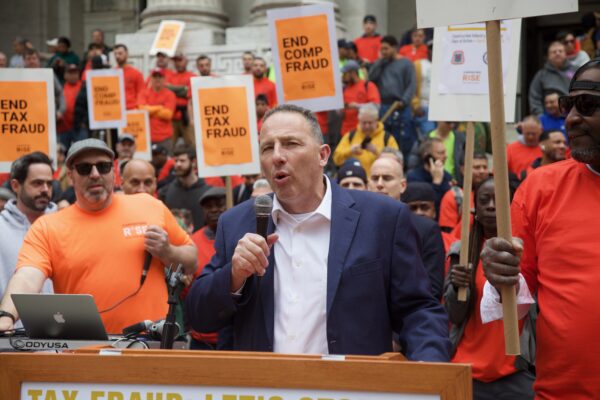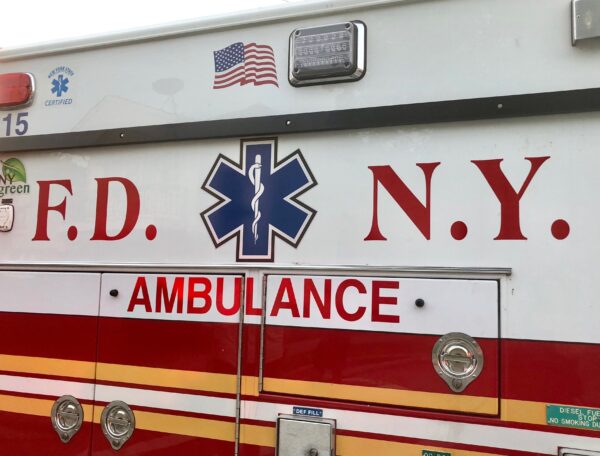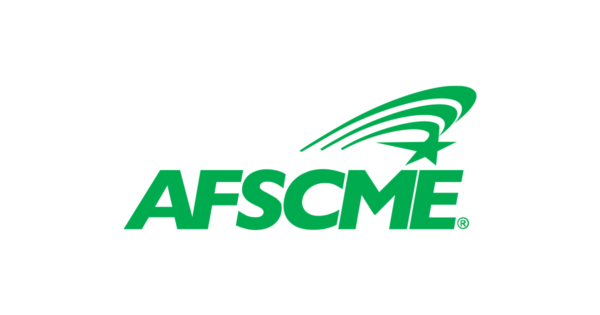April 29, 2015
By Joe Maniscalco
New York, NY – A powerful coalition of organized labor, elected officials and environmental groups is poised to reform the city’s commercial sanitation industry in ways that haven't been seen in 25 years — but aspects of the new franchising model are causing some concern among supporters.
The idea to introduce franchising to the commercial sanitation industry goes all the way back to the Dinkins administration.
Those advocating for change say the existing system is hopelessly broken – exploiting workers, polluting low-income neighborhoods and hurting small businesses, all for the benefit of a cadre of “low road” contractors unconcerned about either employees or the environment.
“We are here to today because we are fed up with the commercial sanitation industry that puts its profits ahead of their workers and the communities of New York,” Teamsters Joint Council President George Miranda said ahead of a special Committee on Sanitation and Waste hearing at City Hall on Wednesday morning.
Allan Henry, a 44-year-old Teamsters organizer, spent more than 25 years working in the commercial sanitation industry before joining the union six months ago.
“I’m running into a lot of [non-unionized] workers who are making less money today than I did 28 years ago when I started,” Henry told LaborPress.
One of those workers logging as much as 100 miles on dangerous 12- to 14-hour overnight shifts is Henry’s own 28-year-old son.
“As far as wages, it’s a race to the bottom,” Henry said. “The workers are killing themselves and the quality of life is horrible.”
Advocates for change maintain that part of the problem is a broken regulatory system that sets a cap on how much private collectors can demand without setting a minimum charge – similar to the way yellow taxis operate. Critics say the system makes it possible for low road contractors to destroy competition and drive down standards.
Many small business owners charge that they are also at the mercy of those same private companies.
Naama Tamir, owner of the Lighthouse restaurant in Williamsburg, recently became frustrated trying to find a private carting company that was both more affordable, and sensitive to environmental issues.
There are 250 licensed carters in New York City, but only about 30 contractors collect the 5.5 million tons of trash flowing through the commercial waste stream.
“The current system offers very little protection for price stability for restaurants like mine,” Tamir said. “Large companies have pricing leverage. Small businesses don’t have that bargaining power. We’re being thrown under the proverbial garbage truck. There really is a better system at hand and we really should be moving towards it.”
Over the course of his decades-long career in the private sanitation industry, Henry said he never recycled “a bottle, can or a piece of plastic.”
“The worker throws that right into the regular garbage,” he said. "Most of the customers have no clue.”
The Teamsters favor a franchising model in part because they say it will not only consolidate routes, cut down on pollution and provide transparency, but also promote good jobs with proper benefits.
“It is a race to the bottom,” Miranda told LaborPress. “Obviously, the employer is going to pick the cheapest one. Not the safest one, not the cleanest one, but the cheapest one – and it’s not always the best.”
Laborers Local 108 represents about 1,200 workers in the commercial sanitation industry. Mike Hellstrom, the union’s business manager, is strongly supportive of reform, but is concerned that more needs to be done to protect the good contractors remaining in the industry.
“We’d like to see a robust plan between the private sector, environmental justice community and the elected officials,” Hellstrom told LaborPress. “Low road contractors are the problem. The low road contractors have become the majority, and the responsible contractors have become the minority.”
According to Hellstrom, regulations precluding good contractors from bringing in existing customers on newly purchased routes, as well as the system of brokering out collection stops, must be addressed.
“Fundamental change has to happen, and I don’t think franchising is the ultimate solution,” Hellstrom said.



